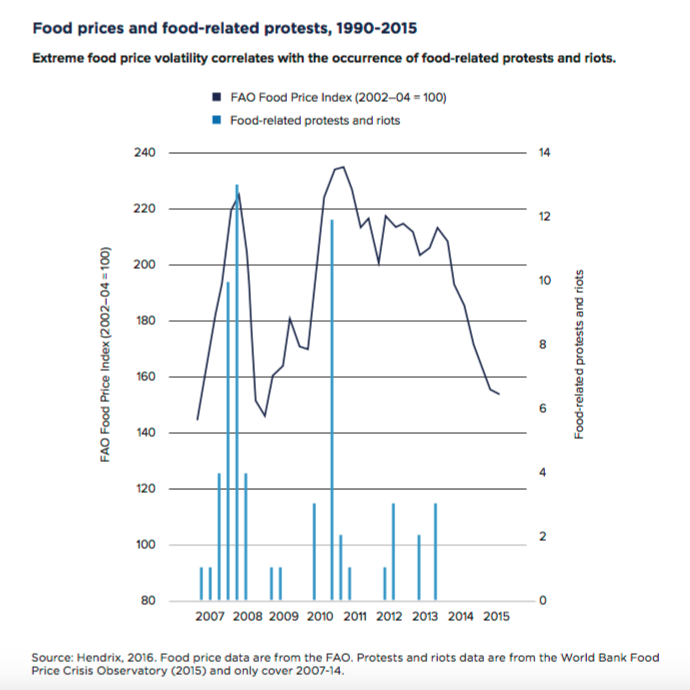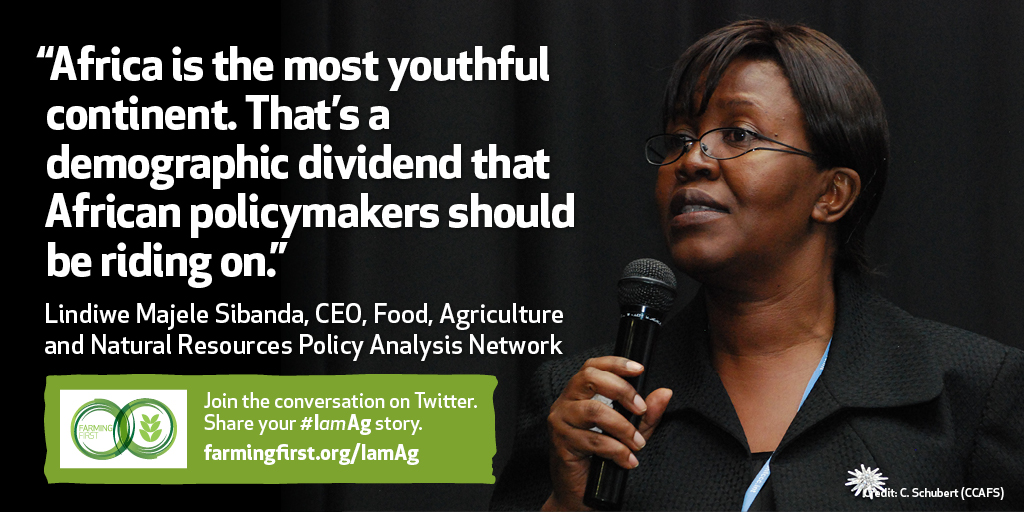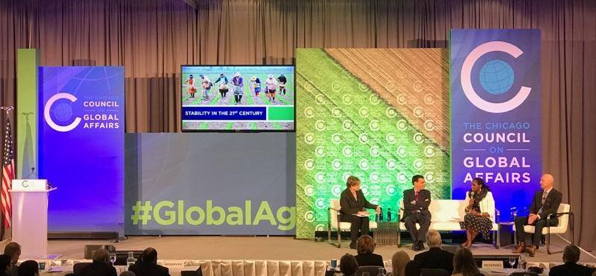Amid recent turbulent political shifts around the world, a new report by the Chicago Council on Global Affairs puts food security at the heart of global peace and prosperity. Launched at the Council’s two-day Global Food Security Symposium in Washington DC, the report – Stability in the 21st Century – calls on political leaders to make food security a pillar of national security policies.
The authors highlighted links between high food prices and unrest, and said commitments to end hunger and malnutrition were more important than ever to address the challenges of instability, climate change and a growing young population.
“It’s unacceptable that the threat of famine still exists in the world today,” said Ivo Daalder, President of the Chicago Council on Global Affairs. “A food secure world creates new economic opportunities at home and makes America and the world far safer.” Failure to address the challenges of a growing population and climate change would be “catastrophic”, the report said.
In particular, it cited the “youth bulge” in Africa, where the number of people aged 15 to 24 is expected to double to 400 million in the next 30 years. “It’s a tsunami facing us in terms of youth,” said Douglas Bereuter, co-chair of the Independent Task Force on Global Food Security behind the report. “The jobless rate is extraordinary.”
At the same time, the value of the agriculture and food sector in Africa alone is expected to reach $1 trillion by 2030.
This dilemma inspired a robust discussion on day one of the symposium at one of three solutions sessions entitled Building Africa’s Capacity and Human Capital. High levels of unemployment leave young people more likely to turn to crime and even terrorism, said David Ruchiu, Africa Director at Farm Concern International.

“The youth of sub-Saharan Africa are not the same youth we had in the 80s or the 90s,” Mr Ruchiu said. “They are very switched on and can take up the challenges that are globalized. “But there is also a view that looks at agriculture as something that’s not great to do.”
William Asiko, Executive Director of Grow Africa, added that today’s young people were most motivated to own their own business. “They don’t want to be conventional,” he said. “That’s something we should tap into.”

Inspiring young people to take up careers in agriculture was a priority for Farming First and its supporters last year – click the image to learn more.
Going further, Alaa Murabit, High-Level Commissioner and SDG Global Advocate, identified young women as the greatest potential partners in the plight for global food security within the growing youth population. “Young women reinvest 90 per cent of income back into their community,” she said.
The report also warned of the growing challenge of climate change and its role in the current famine gripping Yemen, South Sudan, Somalia and Nigeria. During the Voices from the Field session, journalist and author Roger Thurow spoke movingly about the world’s collective negligence to end the “medieval scourge” of hunger in Ethiopia in the first hunger crisis of the 21st century, and which is now being repeated.
The need to adapt to rising temperatures and water scarcity should also be seen as a matter of national security because of its links to economic growth, the symposium heard.
“The takeaway from the food crisis of 2007/08 was about building resilience in natural and economic systems,” said Suzanne Fry, Director of the Strategic Futures Group.
The report had four key recommendations:
- Make food security a pillar of national security;
- Prioritise public research investments to unlock innovations;
- Amplify the power of the private sector to transform food and nutrition security;
- Ensure efficiency in assistance programs and build countries’ capacity.
Mr Bereuter said he was optimistic about ending hunger and malnutrition and cited the overwhelming support for the Global Food Security Act in the US.
“Food security as a national security issue really can have bipartisan support,” he told the symposium.
And Farming First supporter Matt Shakhovskoy, of the Initiative for Smallholder Finance, highlighted some of the success stories that had opened up financing for farmers. Paying tribute to cooperatives like Root Capital, he said we had entered a “really exciting era” in which financial products are tailored to the specific needs of smallholders.
But there was no disguising the apprehension about the impact of the current political climate on implementing the necessary policies to achieve food security.
“When 95 per cent of American consumers live outside the US, we have to go out and make sure for our own economic interests that we’re investing in bringing up the poor in this world,” said Liz Schrayer, President and CEO, US Global Leadership Coalition. “And if we’re going to do that, we have to invest in agriculture.”
Ending on a note of optimism and defiance, Devry Boughner Vorwerk, Corporate Vice President for Corporate Affairs at Cargill, said: “We’re going to make it inconvenient for our policymakers to make the wrong decision.”
Check out Farming First’s full digest from the Global Food Security Symposium. Sign up to Farming First’s newsletter and never miss another update.



